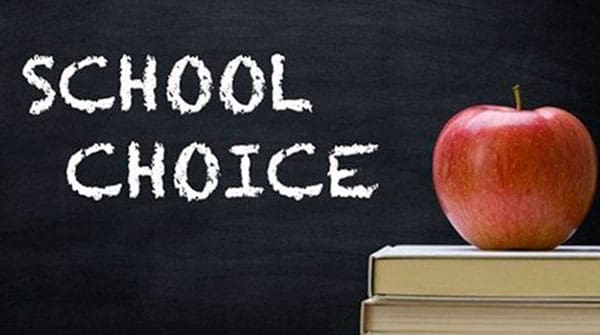The two parties vying for victory in the Alberta election have vastly different approaches to education
 The Alberta election campaign is now underway. Polls indicate that it will be a tight race between Danielle Smith’s UCP and Rachel Notley’s NDP.
The Alberta election campaign is now underway. Polls indicate that it will be a tight race between Danielle Smith’s UCP and Rachel Notley’s NDP.
With the NDP well ahead in Edmonton and with most of rural Alberta locked in for the UCP, the election will almost certainly come down to Calgary, where the UCP and NDP are neck-and-neck in the polls. This means that Calgary voters essentially get to choose who will be the next premier.
Election campaigns tend to focus a lot on fiscal issues and health care. In Alberta, there is also usually a vigorous debate about which party will best stand up to Ottawa’s intrusion in areas of provincial jurisdiction. Unfortunately, this means that other vital topics, such as education, often receive less attention.
However, voters should pay attention to education because this election will impact Alberta schools in a big way. Perhaps the most obvious difference is on the matter of curriculum – which is the substance of what students are expected to learn in school.
 |
| Related Stories |
| Not all educators are teachers
|
| Alberta’s business leaders need to take education failures seriously
|
| Fighting back against Big Brother’s brainwashing
|
| Keep an Eye on Alberta |
The UCP government has implemented substantial curriculum revisions at the K-3 level and plans to expand its implementation to Grades four to six in the fall. However, not only has the NDP promised to halt the expansion of the new curriculum, but they also promise to scrap it altogether if elected this spring.
No doubt there have been some significant hiccups in the UCP’s rollout of the new curriculum, particularly in social studies. However, the new math and English Language Arts (ELA) requirements mark a substantial improvement over what was in place. Specifically, Alberta students are now required to learn the standard algorithms for addition, subtraction, multiplication, and division and will need to demonstrate fluency with basic math facts.
In addition, the new ELA curriculum – emphasizing explicit and systematic instruction in phonics – will help students become more proficient readers. Research has long been clear that phonics (sounding out letters and words) is vastly superior to the three-cueing method, which essentially encourages students to guess the meaning of words based on their context.
Learning how to read is a human right, as evidenced by a recent Ontario Human Rights Commission report about the state of reading instruction in that province. The Right to Read report pulled no punches as it excoriated Ontario schools for subjecting students to inferior reading instruction, which impacted poor students the most. It called for a total overhaul of the provincial ELA curriculum so that it includes a proper emphasis on phonics.
If the NDP wins the Alberta election, they will undoubtedly scrap the new ELA curriculum. This might make some well-paid curriculum consultants happy, but it will not be good for Alberta students. Students need explicit and systematic instruction in phonics, and this won’t happen if Alberta schools revert to the old ELA curriculum.
It’s also important to consider the different approaches of the UCP and NDP on school choice. Alberta currently provides significant school choice to parents, as evidenced by the fact that independent schools are eligible for partial operational funding from the province. In addition, Alberta is the only province to allow charter schools.
Charter schools are publicly funded schools that are run independently. They cannot charge tuition, and they must teach the provincial curriculum. There are currently 19 charter school authorities and 34 individual charter schools in Alberta. This number continues to increase, mainly because the UCP recently lifted the arbitrary cap of 15 charter schools that had previously been in place.
Charter schools meet needs that aren’t being met anywhere else. Parents who want a more traditional back-to-the-basics approach can send their kids to Foundations for the Future Charter Academy in Calgary, while those who want individualized programming for their at-risk kids might choose Boyle Street Education Centre in Edmonton. Meanwhile, some charter schools, such as Valhalla Charter School in northern Alberta, were formed when the local school board planned to close Valhalla’s only school.
Although the NDP never abolished charter schools while in office, they were never particularly friendly to them either. They certainly expressed no interest in lifting the cap on the total number of charter schools and made no effort to reduce the onerous regulations that made it hard to create new ones. If they get back in power, expect to see significant roadblocks put in the way of any charter school looking to expand.
When Alberta voters, particularly those in Calgary, go to the polls later this month, they had better think carefully about what type of schools they want to have. This election will have a big impact on the type of learning that happens in schools.
Michael Zwaagstra is a high school teacher, a senior fellow at the Frontier Centre for Public Policy, and co-author of the book What’s Wrong With Our Schools and How We Can Fix Them.
For interview requests, click here.
The opinions expressed by our columnists and contributors are theirs alone and do not inherently or expressly reflect the views of our publication.
© Troy Media
Troy Media is an editorial content provider to media outlets and its own hosted community news outlets across Canada.